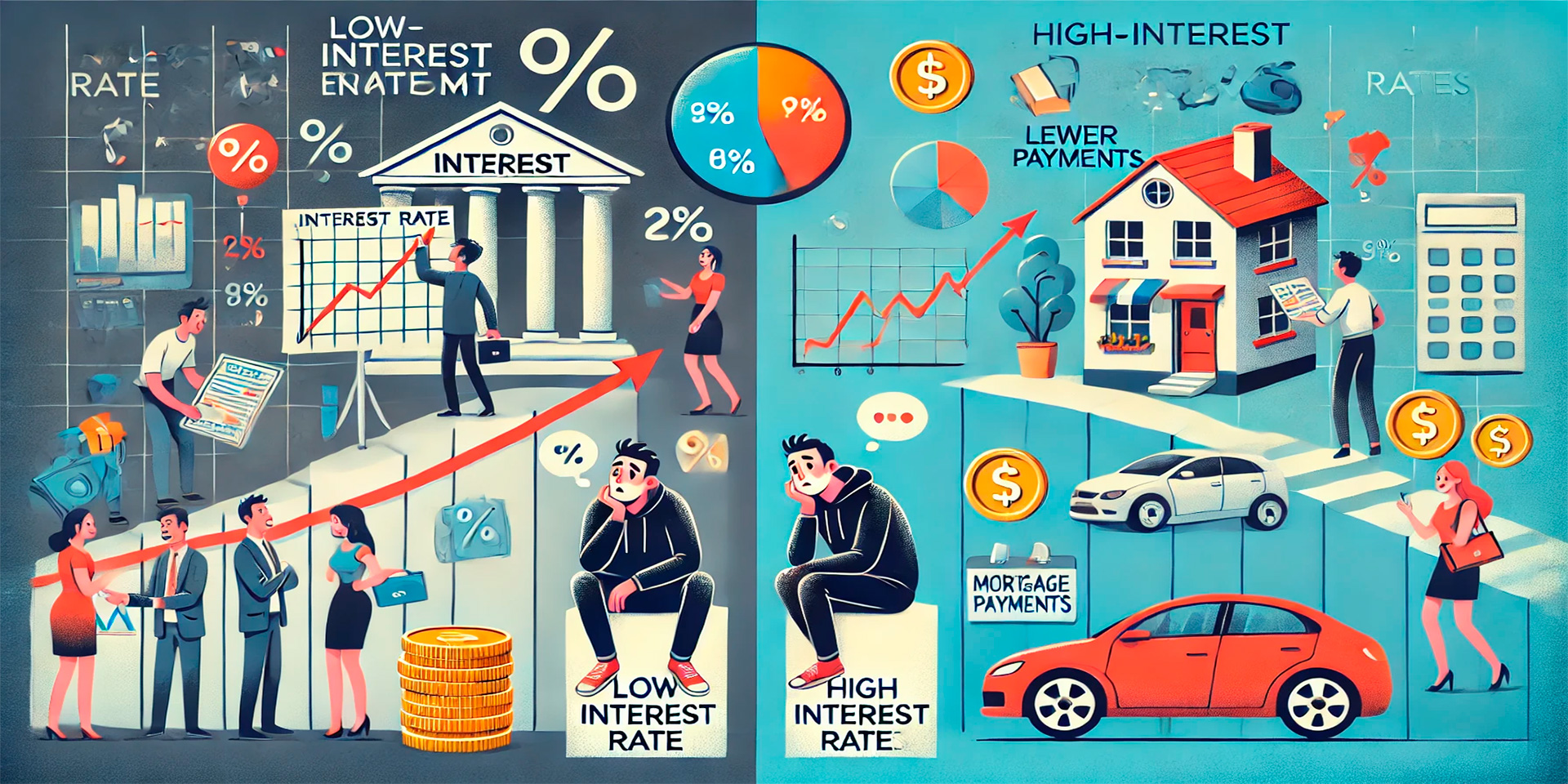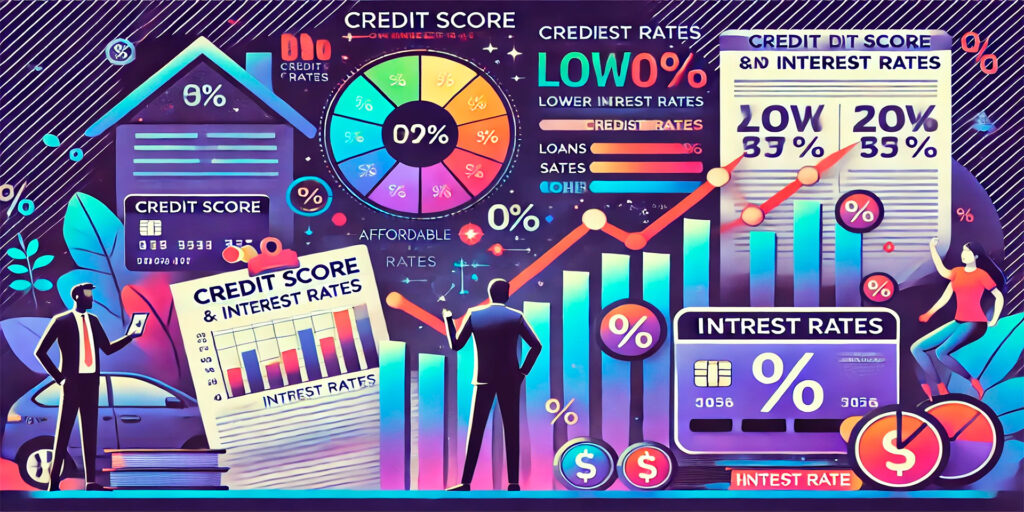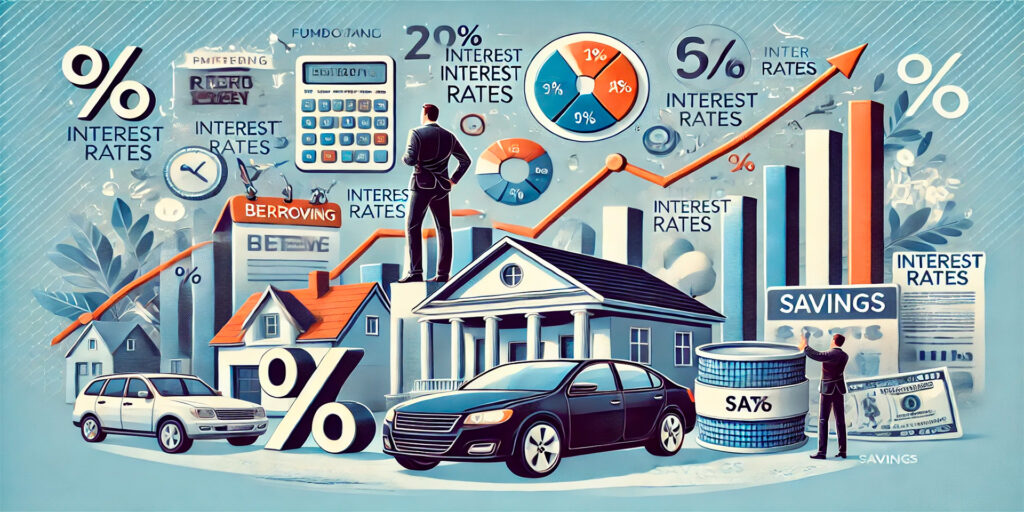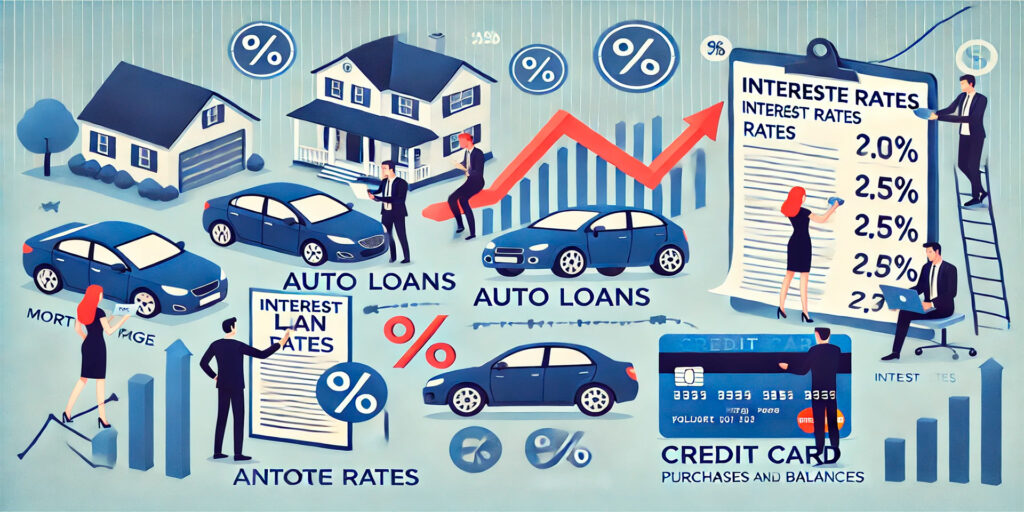Interest rates are a key factor in almost every financial decision you make, influencing everything from personal loans and mortgages to credit card debt and investments. Whether you’re planning to borrow or save, understanding how interest rates work and how they impact your financial choices is essential for making informed decisions. The rate of interest determines how much you will pay for borrowing money or how much you will earn on savings and investments, making it a critical element in shaping your financial future.
Interest rates affect not only the affordability of loans but also the overall cost of credit. When interest rates are low, borrowing becomes cheaper, allowing you to secure loans with lower monthly payments. However, when rates rise, borrowing becomes more expensive, which can put a strain on your finances if you’re not prepared. Understanding how interest rates fluctuate and how they are determined can help you navigate the complexities of the financial system and make choices that protect your financial well-being.
Factors That Influence Interest Rates
Several factors determine the interest rates offered by lenders and financial institutions. One of the primary influences is the overall economic environment. In times of economic growth, central banks, such as the Federal Reserve, may raise interest rates to control inflation. Conversely, during economic downturns, central banks often lower rates to encourage borrowing and spending, stimulating the economy. These policy changes trickle down to individual borrowers, affecting the rates available for mortgages, personal loans, and credit cards.
Your personal financial profile also plays a significant role in the interest rates you’re offered. Lenders assess your credit score, payment history, and overall debt load to evaluate the risk of lending to you. Borrowers with higher credit scores are typically seen as lower risk, which results in lower interest rates. On the other hand, individuals with lower credit scores may face higher interest rates, as lenders view them as more likely to default on loans. This makes maintaining a strong credit profile critical for securing favorable loan terms.
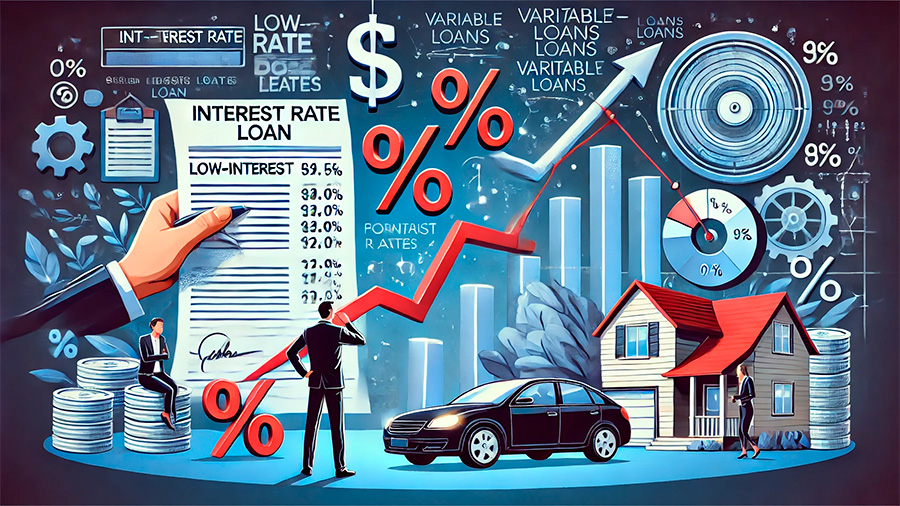
The Impact of Interest Rates on Loans
When it comes to loans, the interest rate directly impacts the total cost of borrowing. A lower interest rate means lower monthly payments and less money spent on interest over the life of the loan. For example, if you’re taking out a mortgage, even a small difference in the interest rate can lead to thousands of dollars in savings over a 30-year term. The lower your interest rate, the more affordable your loan becomes, making it easier to manage your finances.
In contrast, a higher interest rate increases both your monthly payments and the total cost of the loan. This can put a strain on your budget and limit your financial flexibility. If you’re considering a large loan, such as a mortgage or an auto loan, it’s important to compare interest rates from different lenders and consider how the rate will affect your long-term financial commitments.
Variable-rate loans add another layer of complexity. These loans have interest rates that fluctuate over time, based on market conditions. While variable-rate loans may offer lower initial rates, they carry the risk of increasing over time, which can lead to higher monthly payments. Borrowers need to be prepared for potential changes in their financial situation if they choose a variable-rate loan.
The Role of Interest Rates in Credit Card Debt
Credit cards typically carry higher interest rates than other forms of credit, making it crucial to understand how these rates affect your debt. The interest charged on credit card balances is often referred to as the Annual Percentage Rate (APR). If you carry a balance from month to month, this APR determines how much you’ll pay in interest on top of the principal amount.
Credit card interest can quickly compound, leading to mounting debt that becomes difficult to pay off. For this reason, it’s important to manage your credit card use carefully and aim to pay off your balance in full each month. If that’s not possible, making larger-than-minimum payments can help reduce the amount of interest you pay over time. Understanding how interest rates impact your credit card debt allows you to make smarter financial choices and avoid the trap of high-interest debt.

Interest Rates and Investment Decisions
Interest rates also play a crucial role in investment decisions, particularly when it comes to fixed-income assets like bonds, savings accounts, and certificates of deposit (CDs). When interest rates are low, these investments tend to offer lower returns, which can reduce your overall investment earnings. Conversely, when interest rates rise, these types of investments typically offer higher returns, providing a more stable income stream.
Investors need to balance the desire for higher returns with the risks associated with fluctuating interest rates. In a low-interest-rate environment, many investors seek out alternative investments, such as stocks or real estate, which may offer higher returns but also come with greater risk. Understanding how interest rates affect different asset classes can help you build a diversified investment portfolio that aligns with your financial goals.
Securing Favorable Interest Rates
To secure the best possible interest rates for loans and credit, maintaining a healthy financial profile is essential. Lenders reward borrowers who demonstrate financial responsibility, so keeping your credit score high, paying bills on time, and managing debt effectively can help you qualify for lower interest rates. Even small improvements in your credit score can lead to significant savings over time, as lower interest rates reduce both your monthly payments and the total cost of borrowing.
Another important strategy is to stay informed about the broader economic environment and how it affects interest rates. By understanding how central bank policies and market conditions influence rates, you can time your financial decisions to take advantage of favorable conditions. For example, refinancing a mortgage when interest rates drop can lead to lower monthly payments and significant savings over the life of the loan.
Shopping around for the best rates is also critical. Different lenders offer varying terms, and comparing offers can help you find the most cost-effective loan for your needs. Whether you’re applying for a mortgage, personal loan, or credit card, taking the time to explore multiple options ensures that you’re getting the best deal available.
Conclusion
Interest rates are a powerful force in your financial life, influencing everything from the cost of borrowing to the returns on your investments. By understanding how interest rates work and how they impact your financial decisions, you can make more informed choices that align with your long-term goals. Whether you’re securing a mortgage, managing credit card debt, or building an investment portfolio, staying informed about interest rates will help you navigate the complexities of the financial system and protect your financial future.

